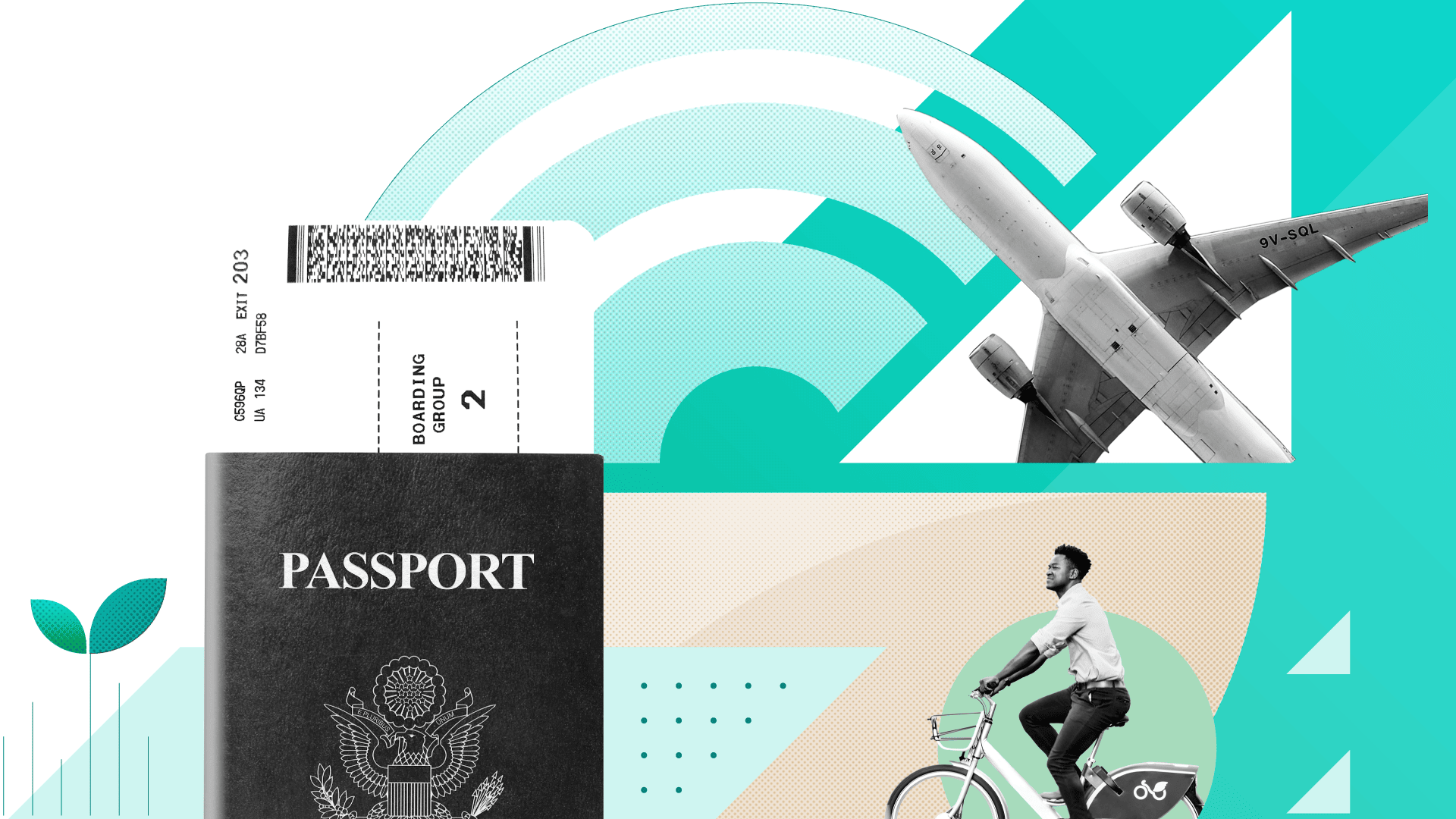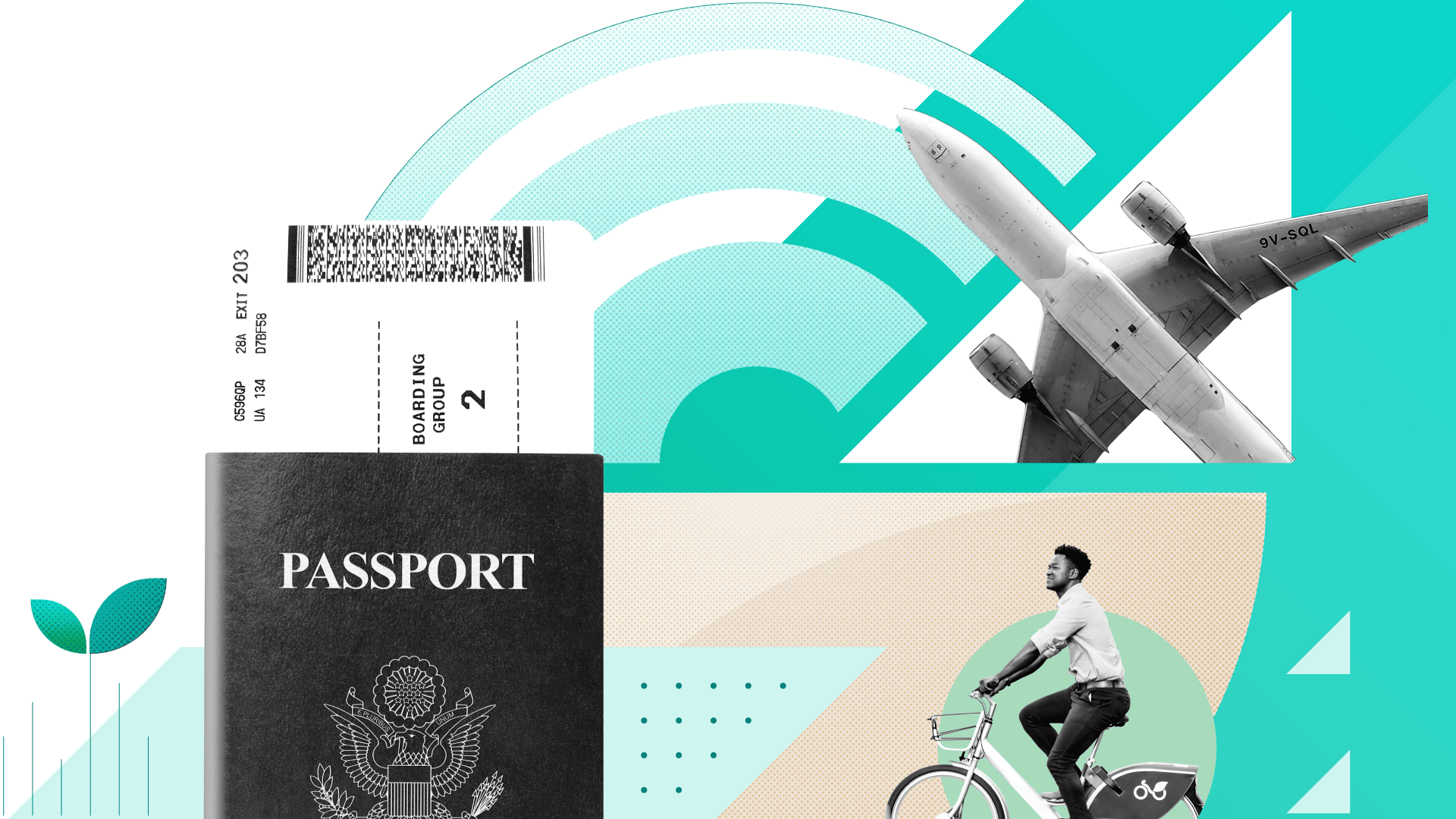Travelers Are Concerned About Climate Change, but Few Are Changing Their Travel Behaviors

Key Takeaways
1 in 5 consumers say they’re “very concerned” about the travel industry’s impact on climate change.
While all generations agree that travelers should minimize consumption of single-use products to help combat climate change, they differ on other ways travelers can be sustainable.
Still, the majority of consumers haven’t taken the actions perceived as most sustainable while traveling in the past year.
Data Downloads
Pro+ subscribers are able to download the datasets that underpin Morning Consult Pro's reports and analysis. Contact us to get access.
The connection between travel and climate change is undeniable — on a global scale, tourism accounts for around 8% of carbon emissions. Yet while a select few truly dedicated consumers are taking drastic measures like giving up air travel completely, most travelers aren’t doing much themselves to curb the environmental impact of their trips.
In 2022, Morning Consult research found that consumers had a hard time defining sustainable travel, and that their desire for more environmentally-friendly trips didn’t always align with action. A new 2024 survey finds there has been little change in the past two years.
Concern about climate change translates to concern about travel’s environmental impact
More than 3 in 5 U.S. adults say they’re concerned about climate change, with more than one-third saying they’re “very concerned.” And while worries are more pronounced for the concept of climate change in general than for more specific aspects of it, certain facets of the travel industry raise flags for consumers. More than 1 in 5 say they’re very concerned about the impact of overtourism on the environment, and around the same number say they’re very concerned about the travel industry’s impact on climate changes.
Naturally, concern varies across consumer groups. In general, the more a segment is concerned about climate change in general, the more they’re likely to be concerned about the specific impact of travel. Younger consumers, Democrats and urbanites are most likely to say they’re concerned about climate change, and those same groups are more likely than adults in general to say they’re worried about the travel industry’s environmental impact. But travel brands must also note that members of these demographics are also more likely to be frequent leisure travelers, who are more likely to say they’re concerned about everything climate-and-travel related than casual travelers. In other words, their most important customers are also the most attuned to environmental issues.
Worries about the cost of travel outweigh concerns about environmental impact

That said, travel’s impact on the wallet is still much more concerning to consumers overall than the effects of their travel behaviors, or the industry in general, on the environment. This underscores a fine line that travel companies need to walk when it comes to messaging, as traveling sustainably is often perceived to come with a high price tag.
Generations don’t agree on much when it comes to how to travel sustainably
While more than half of consumers are “somewhat” or “very” concerned about the travel industry’s impact on climate change, travelers across generations have wildly different opinions about how to combat the negative effects of travel. There is one point of consensus: Minimizing single-use items and properly disposing of waste. When asked to indicate the top three things travelers should do to act sustainably, it ranked at the top with nearly 3 in 10 adults having selected it, and also ranked no. 1 overall for each individual generation.
The similarities fizzle from there, though. For example, while choosing reduced levels of service (for example, reusing towels at a hotel instead of daily laundering) ranked third for adults overall, it ranked eighth for Gen Zers and ninth for millennials. Instead, these younger travelers were more likely to select options that required a slightly higher investment, such as paying extra for carbon credits — notable, given that they are less financially secure than older travelers.
Reducing use of single-use items tops travelers’ list of sustainable actions

This points to an overall pattern, wherein older travelers are more likely to choose options that require sacrificing comfort or experience (also including traveling to closer-to-home destinations and avoiding travel altogether) while younger generations are more apt to select options that require a higher spend, such as using an electric or hybrid vehicle or, among Gen Zers, booking with companies that prioritize sustainability.
Since 2022, the rank order of these actions has shifted slightly. Patronizing local businesses fell towards the bottom two years ago, but has now climbed to fifth among all adults, potentially reflecting the evolving conversation about overtourism and the impact of travel on local communities. Notably, avoiding overcrowded destinations is the second most common action consumers say travelers should take, having overtaken activities such as using an electric or hybrid car or traveling with sustainable companies. In a similar vein, traveling closer to home has also become a relatively more popular option, again shining a light on travelers’ shifting destination decision-making.
Travelers still aren’t walking the walk, primarily because they don’t think their actions are impactful
Our 2022 survey found that travelers’ sustainability actions don’t always align with their ethics — some of the actions that travelers thought were most important to take were also the ones they were least likely to have taken themselves. That continues to be true, with each action aside from traveling close to home, shopping local and minimizing the use of single-use items garnering more than half of respondents to say they “have not done this.” And while sometimes the lack of participation is down to the cost or a lack of awareness of their options, the most common reason is that travelers simply think the action won’t have an impact on the environment.
That’s not to say that travelers don’t believe in individual responsibility — the share who say travelers themselves are responsible for reducing the environmental impact of tourism (22%) is around the same as those who say companies in the sector are on the hook (23%). But perhaps small actions feel like a drop in the bucket compared with the enormity of climate change as a whole.
Despite climate concerns, travelers aren’t acting more sustainably on trips

No matter the reason, what’s clear is that travelers made few strides in ramping up their sustainable behavior in the last two years. The share who said they minimized air travel and travel altogether declined most, which is likely more a reflection of inflation-driven pullbacks in 2022 and the return of the category in the period since. On the positive side, the share who said they used an electric or hybrid vehicle for travel has increased by 4 points. Aside from that though, behaviors have remained remarkably consistent, signaling a need for companies in the travel space to double down on messaging about benefits of travelers’ sustainability actions to encourage participation.
Lindsey Roeschke is an analyst whose work focuses on behavior and expectations of consumers in the travel & hospitality and food & beverage categories, particularly through a generational and cultural lens. Prior to joining Morning Consult, she served as a director of consumer and culture analysis at Gartner. In addition to her research and advisory background, Lindsey has more than a decade of experience in the advertising world. She has lived and worked in seven cities across four continents.


